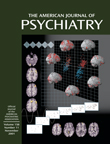Guilt From Negative Genetic Test Findings
Mr. A, a 49-year-old man, underwent a total colectomy for familial adenomatous polyposis. He and his 15-year-old son requested predictive genetic testing 3 years later to reduce uncertainty and to help plan his son’s future, because Mr. A’s mother had died of colon cancer secondary to familial adenomatous polyposis. Mr. A and his son were provided with both an educational session explaining the genetics of hereditary diseases and counseling regarding the possible impact of positive test results. The tests revealed the presence of a mutation in the father but not in the son. Mr. A was relieved that his “bad blood” had not been passed on to his son. Later, however, he began to experience anhedonia and became depressed for several days. His primary care physician could not determine the reason for his feelings.Mr. A was the chairperson of a familial adenomatous polyposis patient support group run by patients, their families, and health care providers. The group had been established to help families with familial adenomatous polyposis exchange information and experiences. Mr. A began to feel guilty because his son had tested negative while family members of others in his support group had tested positive for the disease.
References
Information & Authors
Information
Published In
History
Authors
Metrics & Citations
Metrics
Citations
Export Citations
If you have the appropriate software installed, you can download article citation data to the citation manager of your choice. Simply select your manager software from the list below and click Download.
For more information or tips please see 'Downloading to a citation manager' in the Help menu.
There are no citations for this item
View Options
View options
PDF/ePub
View PDF/ePubGet Access
Login options
Already a subscriber? Access your subscription through your login credentials or your institution for full access to this article.
Personal login Institutional Login Open Athens loginNot a subscriber?
PsychiatryOnline subscription options offer access to the DSM-5-TR® library, books, journals, CME, and patient resources. This all-in-one virtual library provides psychiatrists and mental health professionals with key resources for diagnosis, treatment, research, and professional development.
Need more help? PsychiatryOnline Customer Service may be reached by emailing [email protected] or by calling 800-368-5777 (in the U.S.) or 703-907-7322 (outside the U.S.).

